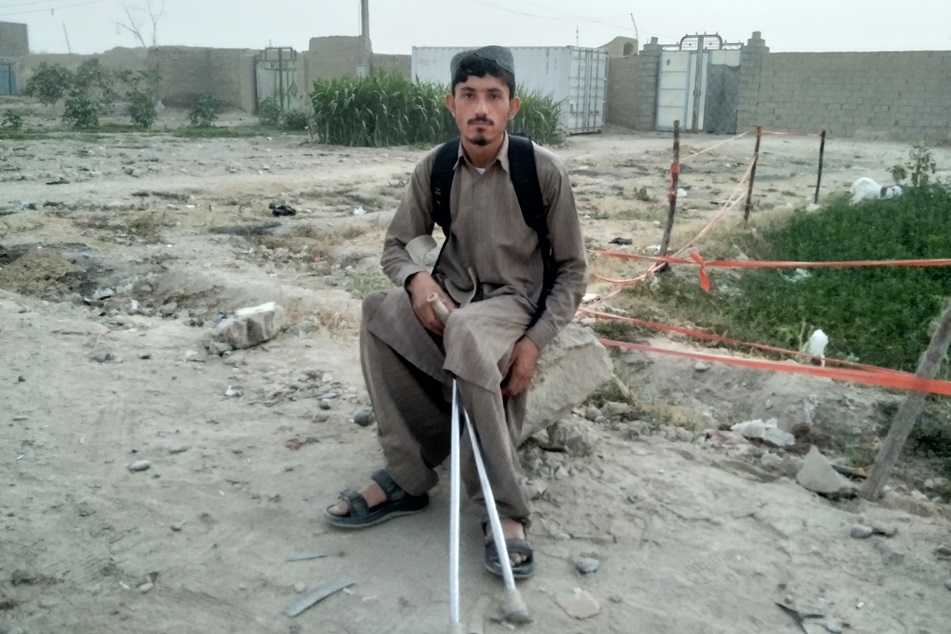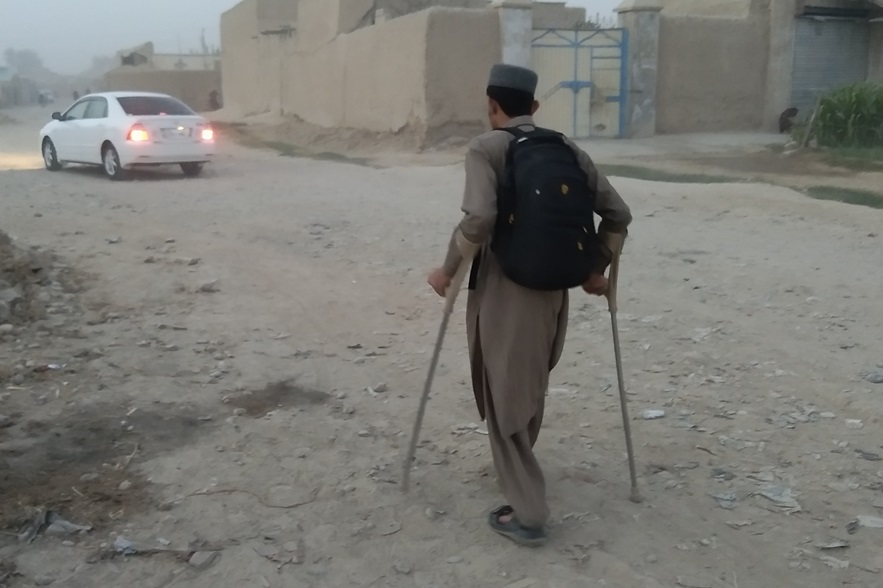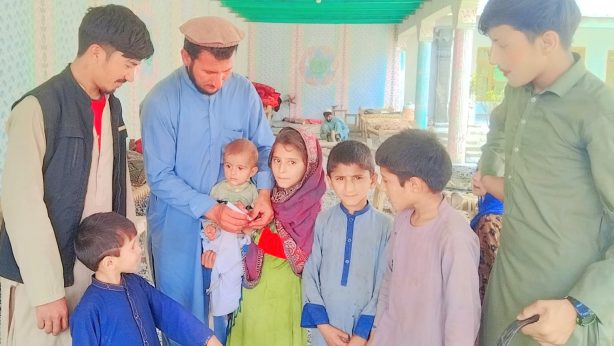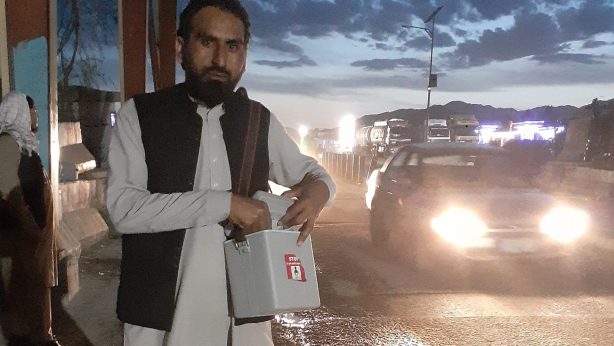The Lasting Tragedy Behind Polio’s Pain

Saeed Zabuli
Helmand, Afghanistan – Kifayatullah, a 23-year-old resident of Helmand province who has spent every moment of his life dreaming of walking on his own, walks with the help of two crutches.
He hails from the northern district of Washir but currently lives in the Mokhtar area of Lashkar Gah.
Kifayatullah contracted polio at the age of four, which robbed him of his ability to walk.
He had just begun to explore the world of childhood play and joy, but the deadly disease of polio shattered his youthful innocence, altering his life forever.
In a voice filled with pain and hardship, he explained: “I was four years old when I became seriously ill. I had a high fever and a severe headache. After a few days, although my fever and headache subsided, my legs weakened to the point where I never walked on them again.”
According to him, this was the start of his misfortune, caused by his family’s failure to vaccinate him.
He recalls, “At that time, my family didn’t see the importance of the polio vaccine and didn’t vaccinate me. As a result, I contracted this dreadful disease and have remained a burden on others ever since.”
However, he says he finds solace in having completed the 12th grade and graduated from school.
“My father would hold my hand and take me to school every day when I was a child. It was very difficult for our family, but I managed to study for twelve years and graduate from school,” he said.
 Kifayatullah, a 23-year-old resident of Helmand province who has spent every moment of his life dreaming of walking on his own, walks with the help of two crutches © Polio Free Afghanistan/2024/Saeed Zabuli
Kifayatullah, a 23-year-old resident of Helmand province who has spent every moment of his life dreaming of walking on his own, walks with the help of two crutches © Polio Free Afghanistan/2024/Saeed Zabuli
He adds that, with the support of his older brother, he has now started higher education in Lashkar Gah, with the hope of becoming a doctor and serving society through his profession.
Kifayatullah struggles to move forward in life every day; what’s normal and simple for others is a long and tiring journey for him.
He believes his disability has significantly limited his life: “Because of society’s negative perceptions, I always wish I were like other people—healthy and free from disability, because this condition holds back every dream and ambition,” he said.
It’s not just his physical limitations that trouble him; the cruel remarks of others wound him every day as well.
Taking a deep breath, he added in a disheartened tone: “People call me by various names, some call me ‘crippled,’ some ‘lame.’ Unfortunately, I live with this torment every day.”
Kifayatullah doesn’t just talk about his own difficulties; he shares his painful story to raise awareness and save others.
With deep emotion, he declared: “Polio is a devastating disease that not only paralyzes the body but also shatters a person’s dreams. I urge people to understand that by not vaccinating their children against polio, they are risking their lives and leaving them vulnerable to either death or lifelong disability.”
 Kifayatullah says: “People call me by various names, some call me ‘crippled,’ some ‘lame.’ Unfortunately, I live with this torment every day” © Polio Free Afghanistan/2024/Saeed Zabuli
Kifayatullah says: “People call me by various names, some call me ‘crippled,’ some ‘lame.’ Unfortunately, I live with this torment every day” © Polio Free Afghanistan/2024/Saeed Zabuli
Kifayatullah’s brother, Mawlawi Abdul Mutahir Baryalai, says that his brother has been living with this disability for the past 19 years, something that has deeply affected the entire family.
However, he adds that they are doing everything they can to help his brother get an education, hoping that in the future, he will be able to live independently.
He urged families not to take polio vaccination lightly but to ensure their children are vaccinated on time, so they don’t end up like his brother.
Dr. Mirza Mohammad Pason, a doctor in Helmand, said polio is a deadly disease that has no cure, but it can be prevented through vaccination.
He said that this is why it is the responsibility of every family to ensure their children are vaccinated on time to protect them from the dangers of polio.
Polio, also known as poliomyelitis, is a viral disease that attacks the nervous system and, in severe cases, can lead to permanent paralysis.
Though the disease has been eradicated in many countries thanks to vaccination efforts, Afghanistan and Pakistan remain among the few places where the virus still poses a serious threat to children’s lives.


